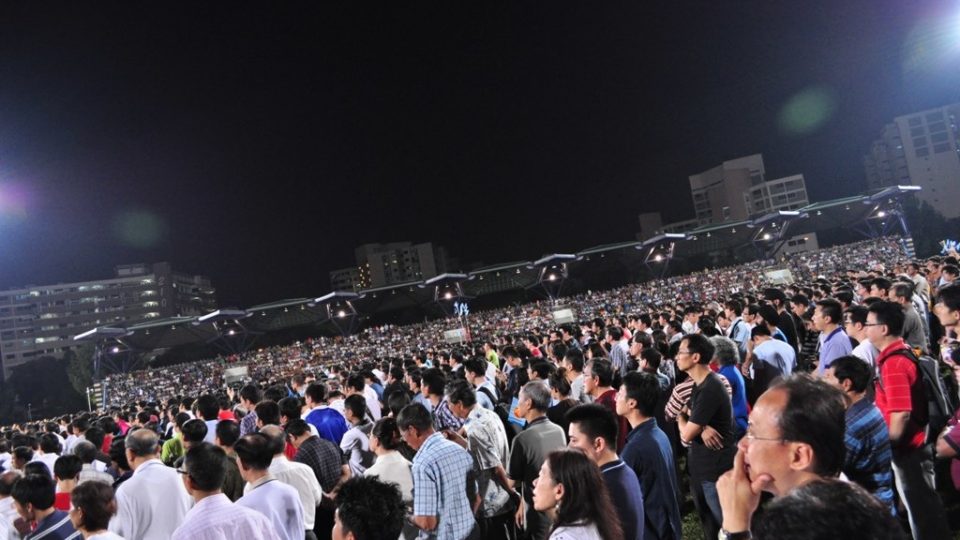It was a different kind of Singapore when the previous general election took place five years ago in 2015.
The then 50-year-old city-state was mourning the death of its first prime minister, Lee Kuan Yew, and months later celebrated its jubilee year in an elaborate show of patriotism on National Day. Exactly a month later, Singaporeans went to the polls on Sept. 1, and witnessed the People’s Action Party win the election with nearly 70% of the vote.
The ruling party even wrested the Punggol East single constituency from rival Workers’ Party.
Fast-forward to 2020, a global health pandemic had spread to Singapore and sunk its economy. More than 40,000 cases have been reported since the outbreak hit in January, largely in migrant worker dormitories. Singapore even recorded its sharpest ever fall in employment this year, attributed to the impact of COVID-19.
Roughly six months into the crisis, Prime Minister Lee Hsien Loong decided it was a “relatively stable” period to call the general election, adding that there was no assurance that the pandemic would be over before the current government’s term ends.
Other than the differences in the political and economic climate, other noteworthy changes in Singapore that may influence this year’s general election include Gen Z voters going to the polls for the first time, and the election battleground taking place online more than at any time before.
Let’s take a closer look at some of the major differences between now and then.
Welcome, Gen Zs
The first batch of Gen Z citizens, Singaporeans born between 1997 and 2012, will go to the polls for the first time this year.
This bunch has never seen a world without the internet and to this day turns to the internet and social media for anything, from entertainment and self-expression to social activism. The platforms have made it possible for the Black Lives Matter and climate change movements to reach our shores, opening up discussions on racial prejudice and the environment in a way we rarely saw in the past.
Many in this group care about causes and issues bigger than public housing upgrades and urban development plans — things the PAP usually boasts about before an election.
Digital election
Speaking of the internet, social media set the stage for political candidates this year instead of physical rallies, which is why we’re seeing political parties covering as much ground online as possible to reach voters, including Telegram channels.
Online platforms are being used more intensively than previous elections and on the back of Singaporeans becoming increasingly active on social media as more stay home due to COVID-19.
The People’s Action Party is on 12 different online platforms including its own app, email subscription service, and WhatsApp. The Workers’ Party uses seven social channels. Other parties are largely active on Facebook and Instagram.
Many are introducing their political candidates online with videos and photos of press conferences and walkabouts posted to their pages. Carefully scripted rollouts can go down in flames in the digital sphere, where they are open to examination, exposed to flak, and can invite backlash. Case in point; Just now-withdrawn PAP candidate Ivan Lim, who was forced to unceremoniously back out of the race after getting a lot of heat over his past behavior. It was rare to see such a spectacle shroud PAP’s aura of infallibility, the same weekend it unveiled its party manifesto. Just weeks prior, PAP’s Tan Wu Meng launched an online offensive against the Workers’ Party chief Pritam Singh by way of questioning the patriotism of a playwright for whom the latter had expressed support.
Other than taking the election online, the COVID-19 pandemic has also led to special considerations in place to make sure voters and candidates stay safe during the elections. This includes television airtime for candidates and more polling stations to prevent crowding.
More lawmakers; changes to electoral divisions
This year’s elections will also make way for more lawmakers to sit in Parliament following changes to electoral boundaries and the number of members allowed to represent a constituency.
Ninety-three parliamentary seats are up for grabs in next week’s election compared to 89 in 2015. Candidates will also contest across 31 electoral divisions instead of 29 previously, more than half of which are represented by groups.
Singapore this year also did away with big-group constituencies that packed six members of parliament in one area, sticking to just four or five members in a group constituency instead.
Bye veterans, hello fresh faces
Other noticeable differences in this year’s elections has been the retirement of the old guard and new faces appearing on the opposition side, including the prime minister’s brother, Lee Hsien Yang, joining the Progress Singapore Party.
The party has joined the elections for the first time under the leadership of former presidential candidate Tan Cheng Bock.
The prime minister said while delivering his party manifesto that 20 of his party’s MPs were retiring from politics. They included Singapore’s second prime minister, Goh Chok Tong; former transport minister Khaw Boon Wan; and Nee Soon GRC MP Lee Bee Wah. PAP has turned out 27 new candidates this year.
Three familiar faces from The Workers’ Party have also decided not to run in next week’s election: former party leader Low Thia Khiang, and fellow party members Chen Show Mao and Png Eng Huat. Low joined the party in 1982, while Chen and Png made their election debut under the party in 2011.
This will be Pritam Singh’s first general election as WP’s chief.
Here’s a look back at the candidates and the constituencies they won in 2015 (Click on the party icons for names of incumbents).
Here’s a look at GE2020 candidates and the constituencies they are contesting:
Related:
GE2020: Election map takes shape as candidates register to run
Bye Ivan, Hello Yao Quan: PAP replaces Jurong GRC candidate after backlash



